COMPARATIVE ANALYSIS PSYCHOLOGICAL CONDITIONS OF FORMATION OF LANGUAGE COMPETENCE IN CHILDREN AND ADULTS IN THE PROCESS OF STUDYING LANGUAGES
Abstract. The article is devoted to psychological problems of the development of linguistic competence in connection with the study of a foreign language. In it on a theoretical basis, a comparative analysis of approaches to foreign language teaching children and adults. A brief theoretical analysis of the understanding of the concept of language competence in foreign language teaching of students of different ages. It is shown that the formation of language competence has a specific psychological mechanisms and differences concerning age features of students. Given a meaningful analysis of psychological features of foreign language teaching both adults and children. Analyze the mechanisms of development of foreign language linguistic experience in adults and children.
Keywords: foreign language, psychology of learning foreign languages, language competence, language acquisition, children's education, adult education, psychological mechanisms, foreign language linguistic experience, age features, communicative competence.
Lyakhov Alexander – candidate of pedagogical sciences, associate professor of pedagogics and psychology branch Stavropol State Pedagogical Institute in Essentuki.
e-mail:
Tsybulnik Svetlana – 1st year student training direction 44.03.05 «Pedagogical education» profiles «History» and «Russian language» branch Stavropol State Pedagogical Institute in Essentuki.
e-mail:
